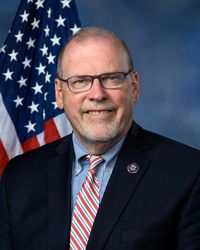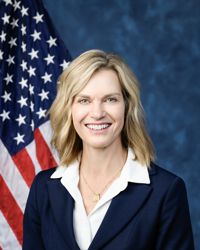0
New Source Review Permitting Improvement Act
12/12/2025, 9:07 AM
Summary of Bill HR 161
The proposed amendments in the bill would help to streamline the process for determining whether a modification or construction has occurred at a stationary source, which is crucial for ensuring compliance with the Clean Air Act. By providing clear guidelines and definitions, the bill aims to make it easier for businesses and regulators to understand and adhere to the requirements set forth in the Act.
In addition to clarifying definitions, the bill also includes provisions for other purposes related to the Clean Air Act. These additional provisions are aimed at improving air quality, protecting public health, and promoting environmental sustainability. Overall, Bill 119 hr 161 seeks to enhance the effectiveness of the Clean Air Act by providing much-needed clarity and guidance on the definitions of modification and construction at stationary sources. By doing so, the bill aims to ensure that air quality standards are met and that public health and the environment are protected.
Congressional Summary of HR 161
New Source Review Permitting Improvement Act
This bill modifies terminology for purposes of the New Source Review (NSR) permitting program of the Environmental Protection Agency (EPA).
In order for a change to a stationary source to be a modification (a change to a stationary source that increases the air pollutant emissions or results in new pollutants) for purposes of the NSR permitting program, the maximum hourly emission rate achievable by such source must be higher than the maximum hourly rate achievable by such source during any hour in the 10-year period preceding the change.
A change at a stationary source is not considered to be a modification under the bill if it is designed to (1) reduce the amount of any air pollutant emitted; or (2) restore, maintain, or improve the reliability of operations at, or safety of, the source. However, such changes are not excepted if the EPA determines the increase in the maximum achievable hourly emission rate from such change would cause an adverse effect on human health or the environment.
Construction, in connection with a major emitting facility (a type of stationary source), does not include a change at such a facility that does not result in a significant emissions increase or a significant net emissions increase.
In relation to major emitting facilities in nonattainment areas, the terms modifications and modified do not include changes at such facilities that do not result in a significant emissions increase or a significant net emissions increase.
Read the Full Bill
Current Status of Bill HR 161
Bipartisan Support of Bill HR 161
Total Number of Sponsors
1Democrat Sponsors
0Republican Sponsors
1Unaffiliated Sponsors
0Total Number of Cosponsors
1Democrat Cosponsors
0Republican Cosponsors
1Unaffiliated Cosponsors
0Policy Area and Potential Impact of Bill HR 161
Primary Policy Focus
Environmental ProtectionAlternate Title(s) of Bill HR 161
Comments

Blaze Sellers
11 months ago
This bill, it make me sad. I don't like how it change things. How will it affect me in the short term?

Layla Dougherty
11 months ago
I fully support this bill and believe it will have positive impacts in the short term.

